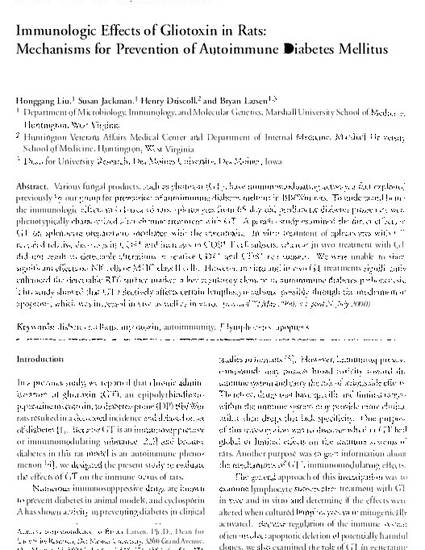
Various fungal products, such as gliotoxin (GT), have immunomodulating activity, a fact exploited previously by our group for prevention of autoimmune diabetes mellitus in BB/Wor rats. To understand better the immunologic effects in GT-treated rats, splenocytes from 65-day-old prediabetic diabetes-prone rats were phenotypically characterized after chronic treatment with GT. A parallel study examined the direct effects of GT on splenocyte preparations incubated with the mycotoxin. In vitro treatment of splenocytes with GT revealed relative decreases in CD4+ and increases in CD8+ T-cell subsets, whereas in vivo treatment with GT did not result in detectable alterations in relative CD4+ and CD8+ cell subsets. We were unable to show significant effects on NK cells or MHC class II cells. However, in vitro and in vivo GT treatments significantly enhanced the detectable RT6 surface marker, a key regulatory element in autoimmune diabetes pathogenesis. This study showed that GT selectively affects certain lymphocyte subsets, possibly through the mechanism of apoptosis, which was increased in vivo as well as in vitro.

This article first appeared in the Fall 2000 issue of Annals of Clinical & laboratory Science, the member magazine of the Association of Clinical Scientists, and is reprinted with permission.
©2000 Association of Clinical Scientists